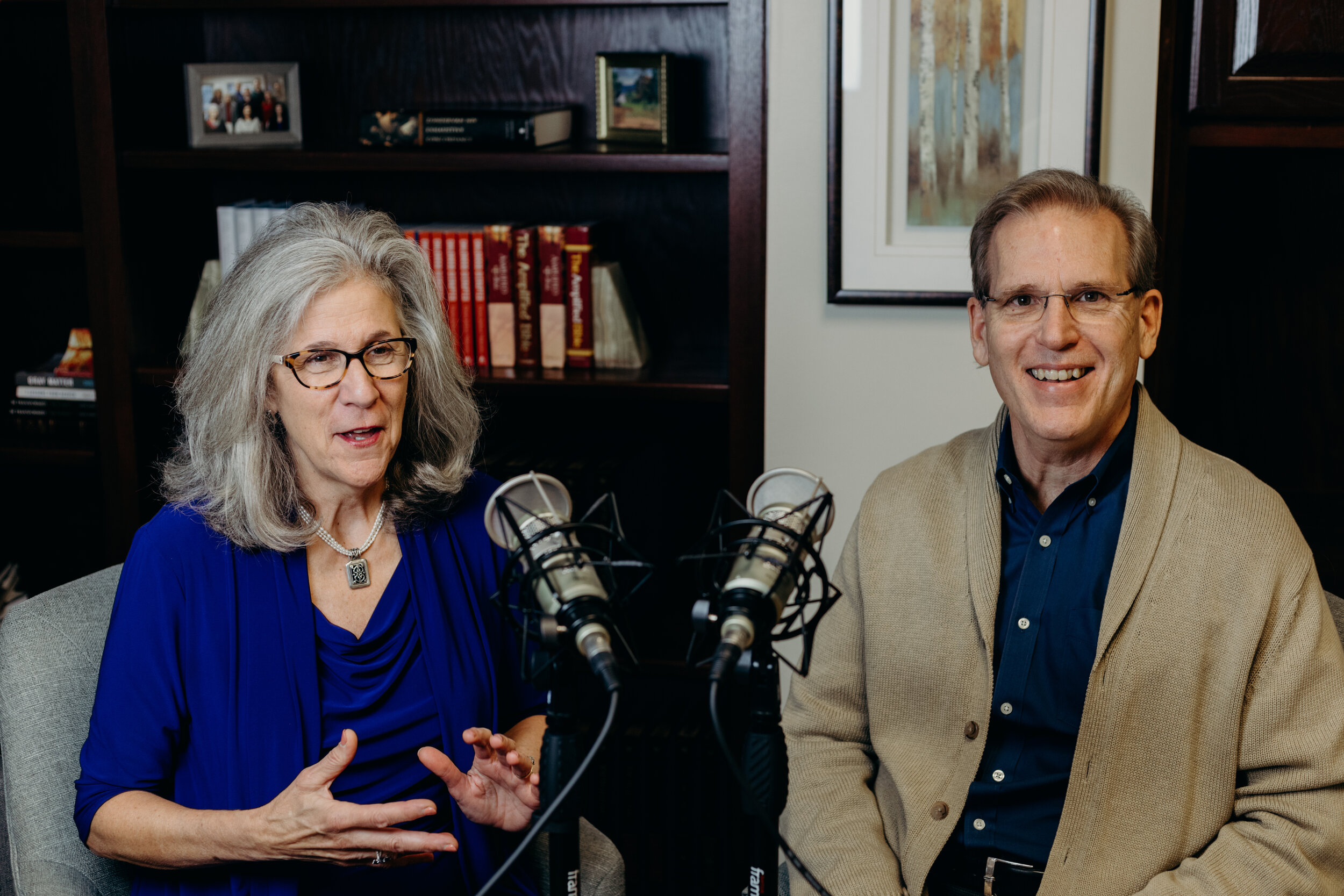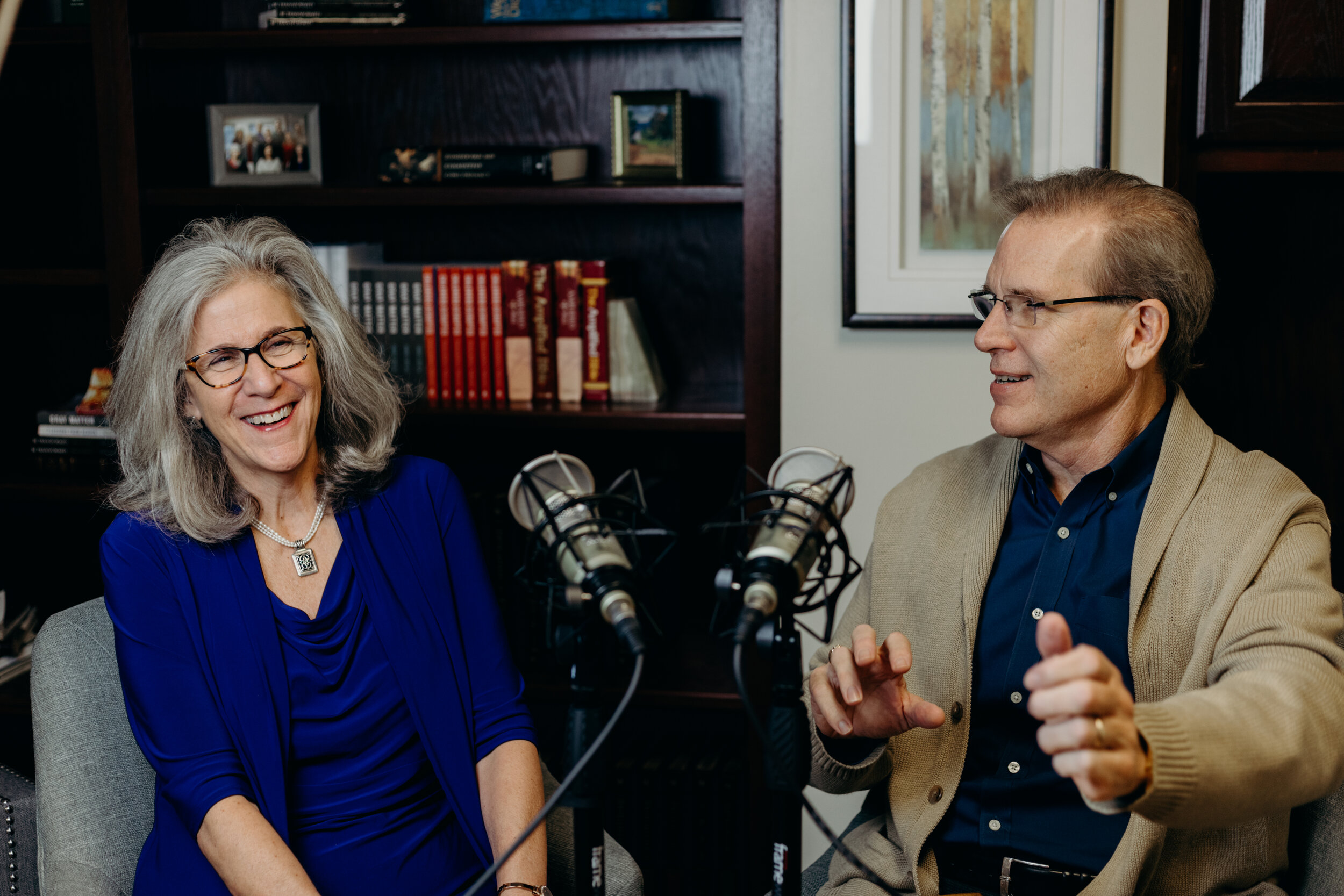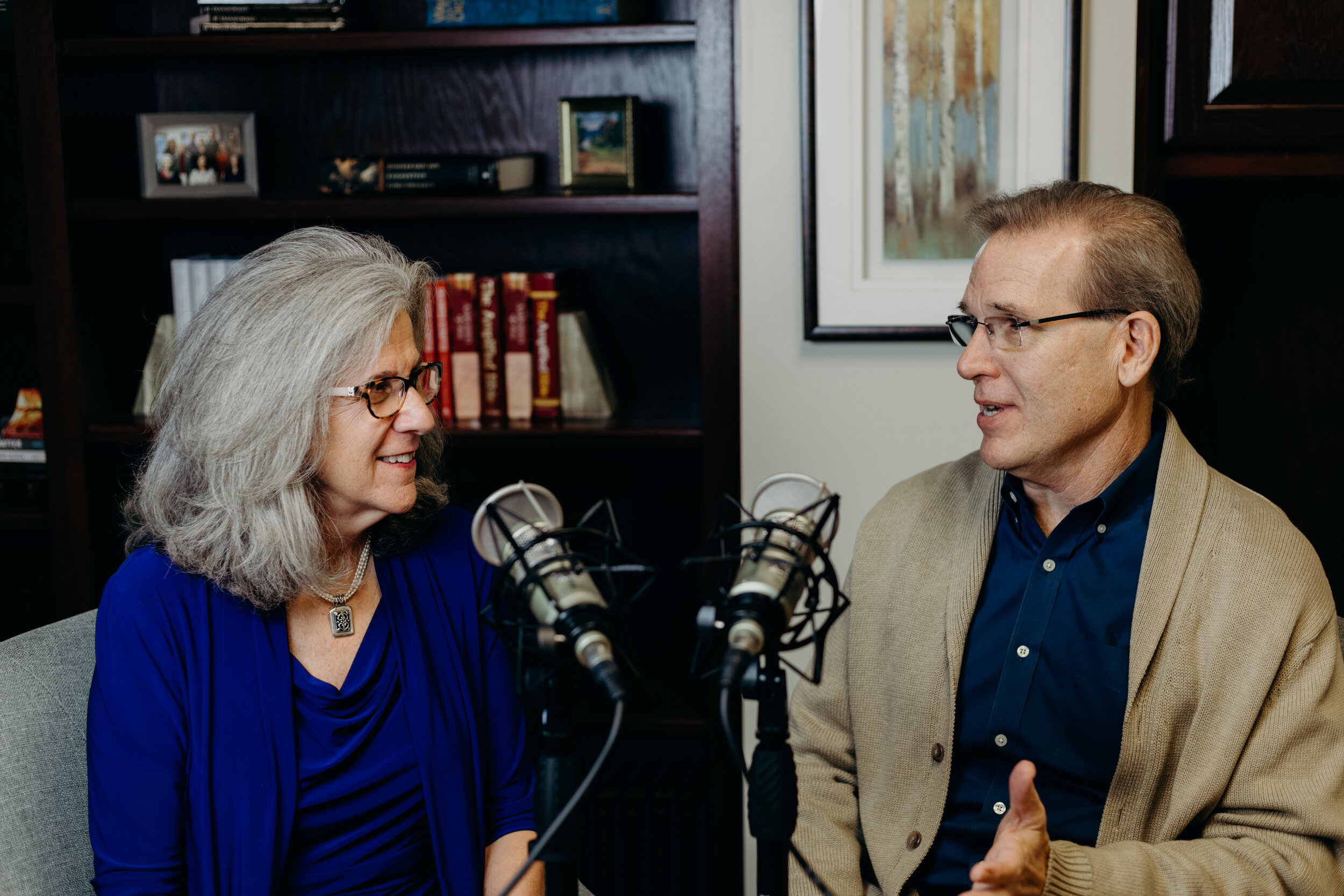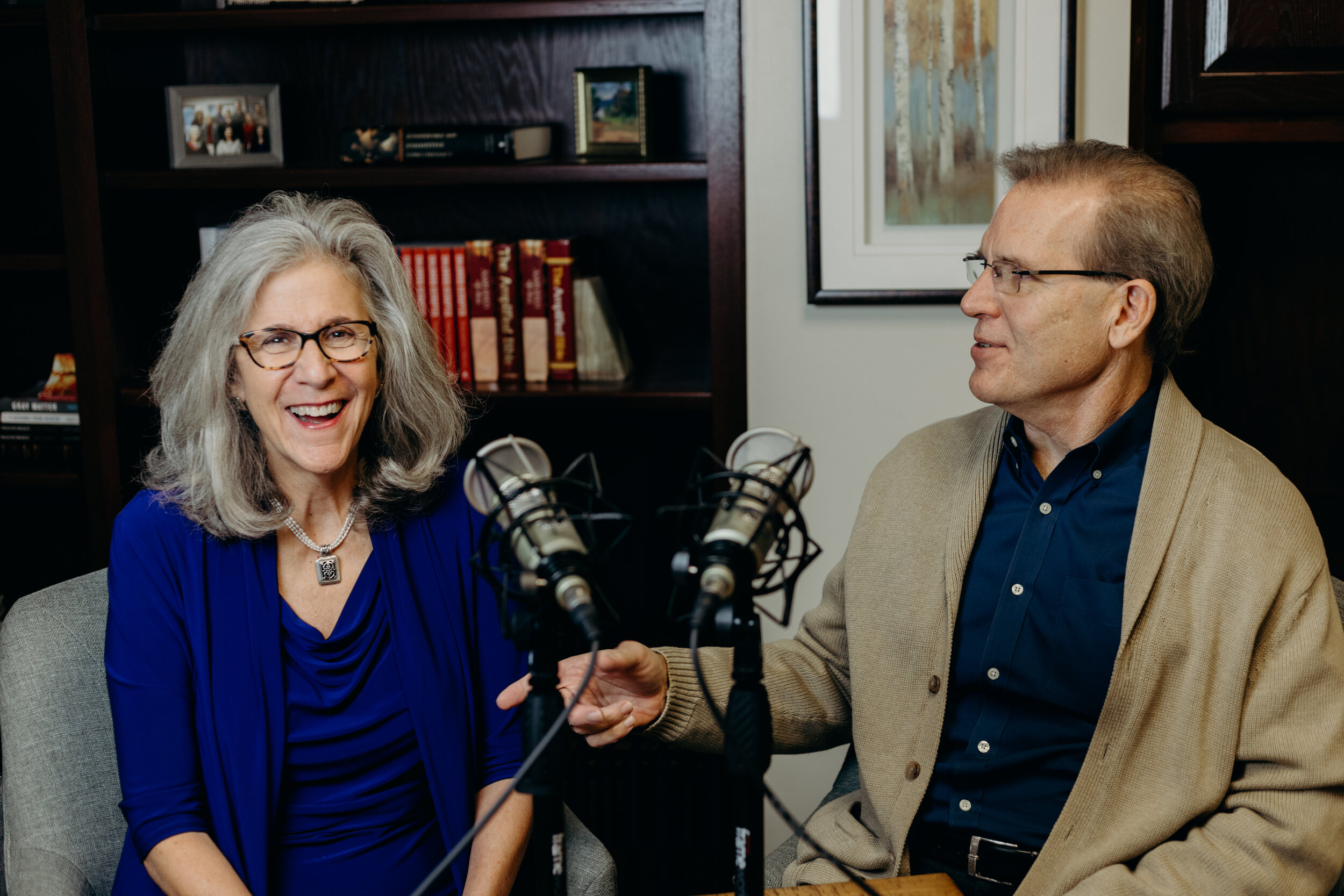Christian Counseling for Shame and Unworthiness Healing
Listen to the Episode
Summary
Shame and Unworthiness can be hard to shake, even for many Christians who know that God loves them, that He forgives them completely and accepts them unconditionally.
In today’s Rock House Center podcast, we uncover the source of these deeply embedded lies and God’s answer for restoration of our true worth. Join us in the closing prayer for God to replace shame and unworthiness with the truth of your unassailable value as established by Him.
In His Peace,
John and Beth Murphy
-
Audio file
Freedom_from_Shame_and_Unworthiness_2.m4a.mp3
Transcript
John Murphy
Hello this is the Rock House Center podcast and this is John.
Beth Murphy
Murphy, Beth Murphy and we welcome you to join us here today. Glad you're with us.
John Murphy
Yeah, we'd like you to join in on our conversation about the two key lies that people commonly pick up in childhood, which are the source of why most of the people, not most, but a tremendous number of people come to here at Rock house for biblical counseling.
Beth Murphy
And it's a source of suffering, I'm sure all over the world, in terms of the depth of these two things that we're going to talk about today and we're going to end up with a prayer at the end. To if, if you resonate with it, that could be a real blessing to begin to unwind that in.
John Murphy
Your life? Yeah, at least millions of people. I think it's got to be a very, very common thing. I'm not sure that we don't get a little bit of both of these lies and probably about every case that comes in. It's just such a common thing. It's just a very foundational. Condition that people come in, that they have succumbed to this and allow these lies to get in their hearts. So we want to zero in on those and kind of pick them. Part and follow up with a prayer at the end for anybody who feels like they're stuck in.
Beth Murphy
Those laws, as well as being defined as anything that doesn't agree with what God says about you or about God, but that with him as the ultimate truth. So we're looking at, we want to partner with God and uproot.
John Murphy
Yeah.
Beth Murphy
The painful sources of lies and and replace it with God's truth in your heart.
John Murphy
Yeah. So the two kind of emotions, negative emotions that people have is unworthy, and they feel guilty and the and there's kind of two different lies that stand behind each one. And we can look at the unworthy one to start. And it's it sets up in early childhood when there is a situation where they are not felt that when people feel like when they are not invested in by their parents, they're not loved by their parents and accepted by their parents. They just can't seem to break through at some level of message from their parents that the child is OK. To them, and that they are someone who they cherish, they value some level of imperfect, unconditional love which is imperfect as it gets in our world of being humans that are have just a certain level of ability to do anything we can't deliver unconditional love perfectly. But in situations where there's virtually none, the child can come into a place of having a real sense of deficit, of being valued, and they're trying to figure out what's happening, what's going on? Why is this the case? That I these people can't love me or value me the the way that I need it? And it's interesting that the conclusion the the common lie and conclusion that people come to our children come to in this stage is that if they can't. Love me. It's because of something wrong with me that I'm either broken, I'm flawed in some way, or I'm just. Basically unworthy of the love of my parents. And if you think about parents and children in the context of gods of our youth and children and young children in particular, their sense of the world is that there are these big people who run the planet and they are the gods of my youth. And they are my parents and in this. Situation this time of life, and particularly in the early years, the parents have this tremendous amount of credibility and they are where all the focus is and where all the dependency is and that they're dependent on them for everything. And one of those dependencies is to feel value. And so if they're in a situation where they're not feeling valued and something is wrong, then they just basically come to the conclusion that, well, they're God and there's something wrong. God's don't do things wrong, so it must be my fault and they pick up this responsibility and and sense of of and a wrong sense of why this thing isn't working. Directly that they can't love me because there's something wrong. With me and that foundational belief is is really underneath a tremendous amount of suffering because what happens is, is that if we believe that we are on worthy, we work very hard to try to overcome that and compensate that and try to earn it. And we go out in the world and through our controlling activities and behaviors and our. Messages of perfectionism. We try to earn that worthiness to solve that problem and that over a long period of time brings about a lot of bad decision making and a lot of suffering and a lot of consequences. Because of it, so it's.
Beth Murphy
Important to realize that there are maybe some obvious ways that this can happen. If a child has had. Abuse. Neglect, abandonment. And you can sort of logically figure that the child might then feel unloved or unworthy because the parents were obviously unable to extend the kind of love that a child is designed by God to need from. Their parents can also happen because children, for one reason or another.
Speaker
M.
Beth Murphy
Can't, as we say, translate or decode the way in which their parents are seeking to love them and extend. Love to them. Maybe the parents have have a strong performance orientation in their own lives and they tend to look for their child to perform at a certain level in order to get affirmation, get their parents attention, and the child gets the message that I'm only worthy if I'm performing at a certain level. And my grades, my sports, my musical ability, or just getting the chores done. And if I'm displeasing my parent and they're unhappy with me, that must be because I'm unlovable. I'm unworthy. And so. All of those things can be sources of where look looking at our own lives and where we picked up a wrong message that ended up. Getting stuck in there pretty deeply of believing that I'm unworthy, that I'm not lovable or valuable.
John Murphy
And it really is a problem in a big sense when we're starting to look at the issue of. Of needing divine love, needing to be fully known and fully loved. But if I believe that I am unworthy of that, then that cuts me off from ever receiving it. If I if I have to, if I feel as though I've got to go to God to perform, I have to become worthy of the Lord. The Lord's love for me then. I am in. I'm stuck in this place of not actually ever getting that worth that sense of worth. Satisfied because you can't, as we've talked about before. Or you can't actually get to worth and be at peace about that need through through performing or through controlling or through an act focused on someone else to try to garner out of them a sense of love that works with God as well. But that's because of God the way God built us, that we can't actually generate worth and our own strength. We receive value is from others and particularly God is how we feel. Value. That's where it comes from. So if I'm in the mode of not believing that I'm worthy, then I turn into not trusting I go. OK, well, if I'm not worthy to be loved by anyone, then I'm going to have to make everybody love me. And then you move in that performance mode and then you get cut off from that sense of self worth, which is a foundational, really critical thing for resilience and to feel good about life and to be able to cope with life. So therefore, if I don't have it, I'm not resilient, I'm not going to coping with that life. And I have a lot of negative emotions which really are stemming from this foundational belief.
Beth Murphy
So some examples of where these kinds of things may have come from in your life or in anyone's life can be situations that are. Well, for example, we'll just have. Have some real examples. OK, so it can be a a situation like the parent has communicated or actually told the child that they. Wanted to give them up for adoption or they wanted to abort them somehow. That message has gotten through to the child and they don't have enough understanding to recognize that that had to do with their parents emotional condition at the time before they were born. They just can receive that as an unworthy message. A very foundational, unworthy message.
John Murphy
Yeah, worthless kind of thing. Yeah.
Beth Murphy
So I must be worthless, or if parents have given them up for adoption, their birth parents did, which even if it's because their birth parents were ill or they were, you know, 14 when their child was born and they weren't able to take care of a child. And the person knows that, but they nonetheless have interpreted it. To mean that there must be something intrinsically unworthy about me, or can be something.
Speaker
Mm-hmm.
Beth Murphy
Much more seemingly mundane of just being punished for expressing emotions or expressing themselves or. Trying to get their needs met and the parent is not accustomed to dealing with emotions or having a child speak up and they're clamped down on and told that that's inappropriate or or people that have told us that they. They sensed that if they had been lovable or worthy than their parents, their their mother wouldn't have wanted to drink a bottle of wine every night after dinner, she would have wanted to talk to me or my dad wouldn't have left if. If I were worthy, the reason my parents got divorced was because of me, because I heard them fighting over me. All of those are the kinds of things that children can conclude. And end up, you know, 57 years old coming to Rock House Center for counseling, wondering why they are so deeply mired in a sense of shame and unworthiness.
John Murphy
Yeah. And that's sort of a good segue over to the other. The other lie is it comes out of it, it's very closely connected is that if something shameful is done to me. That in the same context, the same positioning of me against the of me and the gods of my youth and my sense that if something is wrong, it must be me that in the in the, in the situation where something like sexual abuse has happened or some kind of heinous thing has occurred. It's not uncommon that they move into the it's my fault that actually caused it. So I went. You go from Level 1, which is unworthy, and then you get these other situations occurring and you kind of move into that end. I caused this problem that I am the reason for why the person attacked me. I'm the reason for why my parents got. Divorced and all of those other things you were mentioning, they they fall into that line of going from unworthy to responsible for other people's behavior, which unworthy is really very similar, is that I'm responsible that they couldn't behave lovingly towards me. So it's pretty easy to then get to the next level, which is. And I'm also responsible to, for something is wrong between the two of us. And and there is abuse or whatever it is, some bad behavior or there's a bad outcome or there's a bad circumstance that involves the child, then they feel responsible for.
Beth Murphy
And so obviously they're, you know, we could do 10 more podcasts on these topics and dig deeply into them, but we just wanted to kind of hit the big themes here to open the door on this. And and I want to add just the the. Parent. So for people who are listening and they're thinking about their own childhood, but they may be thinking about their children as well, perhaps they've done some things and they're recognizing that they could have influenced their children's thinking to reach these same conclusions. Well, the answers come from the same place in terms of as. Parents. We we want to receive the truth of what God says about us, and then we want to be able to communicate that to our children as well, but we can't communicate it to our children till we know it and believe it about ourselves. And so that's going to be the answer for for us and the prayers that we do here in a minute. That will begin to replace. These. Lies with truth. What God has to say about you and your value and your worth and and then help you get to a place where you can communicate and pass that on to your children.
John Murphy
As well, yeah, I mean, we do pretty exclusively work with adults here. So we are talking about the consequences in adults life. By the time they get here, which includes how it's going to affect their parenting, yeah.
Beth Murphy
So you want to maybe kind of launch into a prayer here for this?
John Murphy
Yeah, let's, let's go ahead and start up with a prayer where we want to reject the lies that we are responsible for other people's behavior towards us in any degree. We want to reject the law that we are also unworthy in any degree to God's love and that and that. And and from that, you know, we pick up some. Some bad habits of trying to work to get his love and try to, and they want to just kind of reject all those things and take out the. Underpinnings of it.
Beth Murphy
So I want to just add a thought that came to mind when you were talking about that first lie because as we've said before here on these podcasts, we have a foundational principle here that we work on that. What other people do is about them and the condition of their heart and how it makes me feel about me and the condition of my heart. So in that first part. Start. I'm not responsible for somebody else's behavior. We can know logically that we may do things that affect people and they respond to us, but we're talking about. A child being a child and someone, as John mentioned, doing a heinous thing to them. There isn't anything that that child could have done that would have warranted. The abuse or the neglect, there's no say in the case of sexual abuse. There's no there's no blame because of the clothing that the person wore or the way that they behave that in any way sanctions the cruelty or the heinous thing that was done. And so just a reminder here that. I guess really to elaborate on what John said. That. We are not responsible for other people's behavior. Their treatment of us, their abuse of us, their neglect of us, and that's a portion of what this lie is that we're asking God to remove.
John Murphy
Yeah. So if you are feeling like you're connecting with this message and you can sense that you have some of that lie in you and some of that false responsibility in you, then just connect with this prayer as as we pray it out here and try to resolve this with the Lord with the Lord's. Help. Here so just just connect with me in your heart. So heavenly father. I reject the lie that I am unworthy of your love and that I have to. Work for you? I have to earn it. I have to do something to cause you to love me. I declare the truth that you love me perfectly. And you love me for eternity and that there's nothing that I can do to cause you to love me more or. Love. Me less and we follow Father also reject the lie of any false. Guilt that I have taken on because people have how people have behaved towards me because of their because of their heart and their brokenness. Lord, I forgive them. I forgive the offense towards me, Lord. I release some of that. And Heavenly Father, I just ask that you would bring healing to them and their lives and their heart as well. Father also declare the truth that it doesn't matter what has been done and in any sense of responsibility that I may feel that even to even if in the smallest degree, if there was some real responsibility at all that. In every case, when I have done something wrong and Lord I know that you accept me the way that I am, I know that the righteousness of your son covers me and that I have no basis for guilt. That you're the guilt that I have and anyone has from anything that they where they are cripple has been removed by the blood of your son. And so I receive that. Well, so Heavenly Father, please remove these lies from the places in my heart where your truth needs to dwell. Please heal me of how these lies have caused me to suffer. Please heal me of the decisions that the consequence heal me of the decisions that I've made. And. The consequences of those decisions, because I have lived on the Lie and Lord, please give me the strength to resist the desire of my flesh to return to that life. I pray all these things in Jesus name, Amen.
Beth Murphy
Amen. So we pray that you will be greatly blessed by those prayers and that truth, that it will open a door for you to receive the depth of God's love for you. And when we ask, you know that or just remind you that our our mission is to spread these freeing truths of God to a much broader. Platform around the world and the people that we will ever see at Rock House Center for Counseling. And so we ask that. You participate in that mission with us and share this with anyone you think may be blessed or helped by these concepts and these prayers. So we thank you for joining us in the Rockhouse Center podcast today and look forward to our next time together.
John Murphy
Yes, thanks for listening. Look forward to returning here in the podcast. The next one. Bye.







